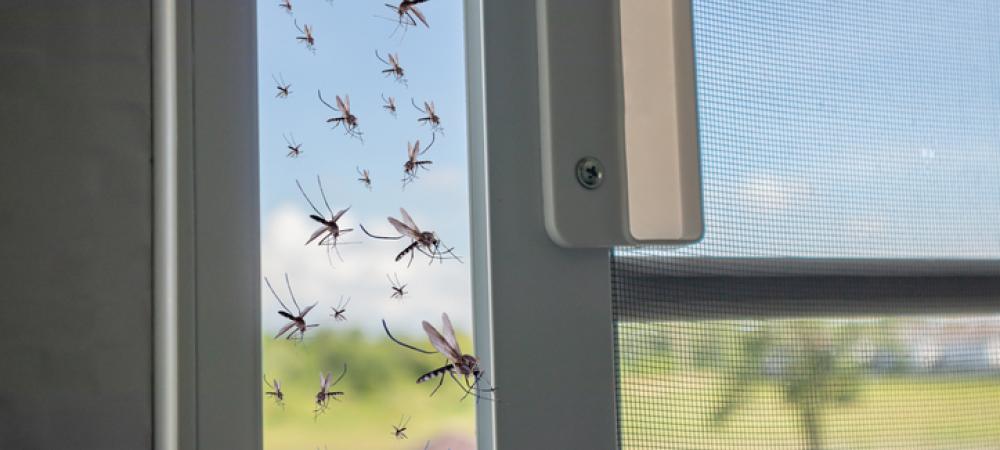The Best Time to Spray for Mosquitoes

When mosquito season hits Virginia and West Virginia, it can feel like your backyard is under siege. These buzzing pests are more than just a nuisance—they can carry harmful diseases and make it hard to enjoy outdoor spaces. Understanding when and how to spray for mosquitoes is key to reclaiming your yard and protecting your family.
In this blog, we’ll cover the best time to spray for mosquitoes, how often to treat your property, and what factors influence mosquito activity. Plus, we’ll share expert mosquito control tips to help you enjoy a pest-free yard all season long.
When Does Mosquito Season Start in Virginia and West Virginia?
In Virginia, mosquito season typically starts in early April and lasts until late October, depending on temperatures. In West Virginia, the season is slightly shorter—running from late April through mid-October—due to its cooler mountainous regions.
Mosquitoes thrive when temperatures consistently stay above 50°F, so warmer coastal and southern parts of both states may experience a longer season. Knowing your region’s climate zone can help you prepare early and stay protected throughout the warm months.
Why Timing Matters: Understanding the Mosquito Life Cycle
To control mosquitoes effectively, it helps to understand their life cycle. Mosquitoes go through four stages: egg, larva, pupa, and adult. Most mosquito control treatments target larvae and adult mosquitoes, which are the most vulnerable stages.
Spraying before mosquito populations explode—in early spring—can help prevent infestations before they start. Repeating treatments during peak activity ensures you’re breaking the cycle before it restarts.
The Best Time of Day to Spray for Mosquitoes
Mosquitoes are most active during dawn and dusk, so the best time to spray is early in the morning or late in the afternoon. Spraying during these windows increases the likelihood of contacting mosquitoes while they’re resting or feeding.
Avoid spraying during midday, when UV rays break down insecticides faster and mosquito activity is low. Timing your outdoor pest control efforts this way ensures maximum effectiveness and longer-lasting protection.
How Often Should You Spray for Mosquitoes?
For best results, professional mosquito spraying should be done every 21 to 30 days during the active season. However, this frequency can vary depending on:
- Severity of infestation
- Property type (residential vs. commercial)
- Rainfall and weather conditions
Seasonal treatments are sufficient for most homeowners, but year-round protection may be necessary for businesses with outdoor seating, rental properties, or homes near standing water sources.
Factors That Affect Mosquito Spraying Effectiveness
Mosquito spraying results can vary depending on several environmental and property-specific factors, such as:
- Weather: Heavy rain can wash away treatments; wind can reduce coverage.
- Standing Water: Mosquitoes lay eggs in stagnant water—check gutters, planters, and birdbaths.
- Yard Design: Overgrown vegetation and shaded areas provide mosquito hiding spots.
- Species Present: Some mosquitoes, like the Asian Tiger Mosquito, are more aggressive and harder to control.
Understanding these variables can help you and your pest control provider customize a plan that works for your yard.
Natural Mosquito Prevention Tips for Homeowners
While professional mosquito control is the most effective solution, homeowners can take steps to reduce mosquito breeding areas such as:
- Eliminate standing water in buckets, plant saucers, and old tires.
- Plant mosquito-repelling plants like citronella, lavender, and marigolds.
- Keep grass short and trim overgrown bushes, where mosquitoes love to hide.
Combining natural prevention with regular treatment increases your chances of long-term mosquito control.
Common Mosquito Species in Virginia and West Virginia
Not all mosquitoes are the same. The most common species found in Virginia and West Virginia include:
- Asian Tiger Mosquito: Aggressive daytime biters known for spreading Zika and West Nile viruses.
- Culex Mosquitoes: Primarily active at night and carriers of West Nile virus.
- Anopheles Mosquitoes: Known for transmitting malaria, though rare in the U.S.
Identifying the mosquito species in your area helps professionals tailor your treatment for better results.
Call Petti for Professional Mosquito Control in Virginia and West Virginia
If mosquitoes are taking over your yard, don’t wait for the problem to get worse. At Petti Pest Control, we specialize in outdoor pest control and offer targeted mosquito treatments that work.
Here’s what you can expect when you work with our mosquito exterminators:
- A thorough inspection of your property to identify breeding sites like birdbaths, clogged gutters, and tall grass.
- Customized mosquito treatments tailored to your yard’s unique needs.
- Strategic applications that eliminate mosquitoes—not just repel them.
- Recurring treatments for consistent relief, all season long.
Protect your home and your family with expert mosquito control that works. Call Petti today or schedule your free inspection online!
